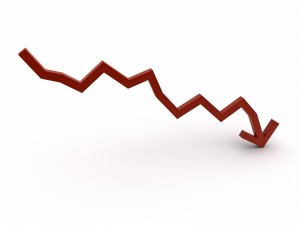 You hear it a lot these days that credit card rates are very high. Why are they so high? Rates are high for several reasons, but they all boil down to supply and demand.
You hear it a lot these days that credit card rates are very high. Why are they so high? Rates are high for several reasons, but they all boil down to supply and demand.
The Federal Reserve sets rates based on the available money supply and rates filter down to banks and consumers from there. All the lenders are looking to make a profit, and it is the consumer of credit who provides that profit in the form of interest on debt.
Your search for that credit card can end by using the FREE credit card finder today!
If you are tired of paying high credit card interest rates and would you like to find the lowest rate credit card that you possibly can, there are ways to do that. You need to look over credit card company offerings to be able compare rates and features. A new card may be better for you, one with a lower rate.
Why are credit card rates so high?
A quick glance at three-month credit card rates shows that the range being offered by companies today varies from about 10.9% to 19.9%. Fixed credit cards are averaging just under 13.8% and variable rate credit cards are being running around 14.5% at the current time.
These rates are all based on the prime rate, the rate that banks charge other banks and their very best customers. This rate is determined by a survey of the top 30 banks conducted by the Wall Street Journal. The rate the average consumer pays is based on this, and goes up and down as it does. The rates you pay will follow the prime rate over a period of time, rates don’t automatically change, but the Prime’s direction will give you the future trend. The Wall Street Journal has an overview of these rates at their website, along with other important financial indicators and information.
Credit card interest rates are usually higher than home mortgage and automobile loans for one reason, collateral. When a person cannot pay a car loan, the bank or other lending institution can repossess the car and cover some of its loss through a resale of the vehicle. Likewise, a home can be foreclosed upon, and resold to provide the bank with all or part of the money it originally lent for the purchase.
Credit cards are called unsecured debt because there is no collateral, there is nothing the bank can acquire for resale that would offset their loss if you cannot or do not pay. The difference in the rate that one consumer pays over another is determined by how much of a risk the lender feels them to be. The bank considers the amount of money you earn, the value of your assets and your credit score. All these things are factored in when a bank decides how much they are going to charge you in interest.
Is there any way to get a lower rate on my credit card?
 Yes, there is. Improving your credit score will almost certainly get you better offers and rates. You can do things to improve your credit score, and although this takes time, it is worth it in the long run. These things would include making sure you pay all your bills on time every month.
Yes, there is. Improving your credit score will almost certainly get you better offers and rates. You can do things to improve your credit score, and although this takes time, it is worth it in the long run. These things would include making sure you pay all your bills on time every month.
Reducing the amount of money you owe will also improve your credit score. Keeping unused accounts open, rather than closing them, has a positive effect on your score as it provides more data to be evaluated and accounts that are paid up are a good thing to have on your record. The Federal Reserve has a website with good tips on improving your credit score.
You can also check with your bank and ask if they can offer you a better rate than they are currently giving you. Such a request will signal to them that you may be shopping around for a better rate, and may result in them offering you one. If they don’t take the hint, you can let them know that you are looking for a better rate and see if they make you an offer.
Which leads us to actually searching for a better rate. There many banks, credit unions and other financial institutions out there with credit card offerings, it cannot hurt to look and see what you can find in the way of a lower rate for yourself.
Your search for that credit card can end by using the FREE credit card chaser!
Similar Articles:
- Wall Street Journal Prime Rate
- What are the best bank credit card rates?
- Are today’s rates the highest credit card rates ever?
- History of Credit Card Rates
- Affinity Federal Credit Union Visa Classic Credit Card
- Are there any current fixed credit card rates?
- What’s the difference between subprime credit cards and prime credit cards?








